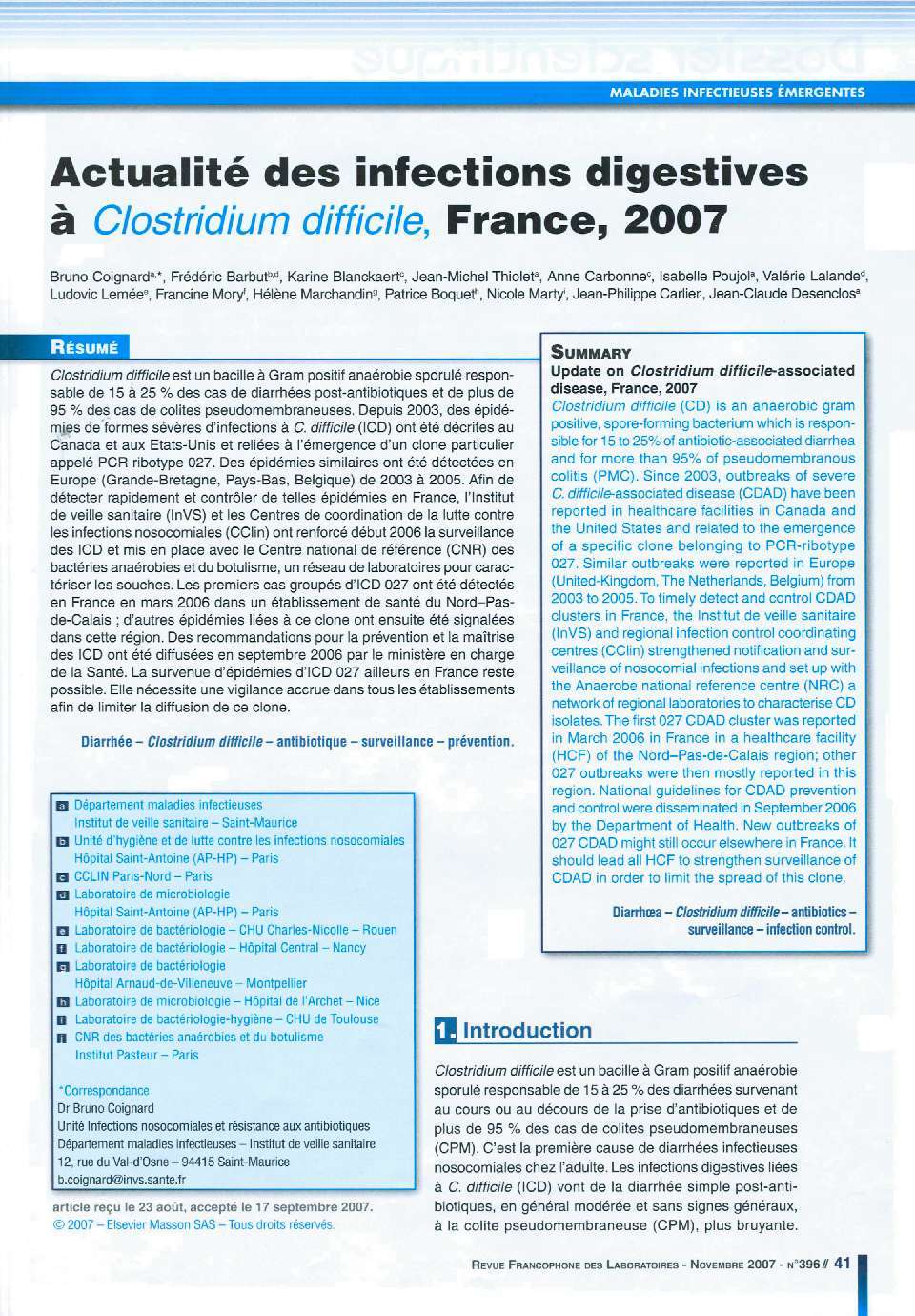| Article ID | Journal | Published Year | Pages | File Type |
|---|---|---|---|---|
| 7664485 | Revue Francophone des Laboratoires | 2007 | 8 Pages |
Abstract
Clostridium difficile (CD) is an anaerobic gram positive, spore-forming bacterium which is responsible for 15 to 25% of antibiotic-associated diarrhea and for more than 95% of pseudomembranous colitis (PMC). Since 2003, outbreaks of severe C. difficile-associated disease (CDAD) have been reported in healthcare facilities in Canada and the United States and related to the emergence of a specific clone belonging to PCR-ribotype 027. Similar outbreaks were reported in Europe (United-Kingdom, The Netherlands, Belgium) from 2003 to 2005. To timely detect and control CDAD clusters in France, the Institut de veille sanitaire (InVS) and regional infection control coordinating centres (CClin) strengthened notification and surveillance of nosocomial infections and set up with the Anaerobe national reference centre (NRC) a network of regional laboratories to characterise CD isolates. The first 027 CDAD cluster was reported in March 2006 in France in a healthcare facility (HCF) of the Nord-Pas-de-Calais region; other 027 outbreaks were then mostly reported in this region. National guidelines for CDAD prevention and control were disseminated in September 2006 by the Department of Health. New outbreaks of 027 CDAD might still occur elsewhere in France. It should lead all HCF to strengthen surveillance of CDAD in order to limit the spread of this clone.
Keywords
Related Topics
Physical Sciences and Engineering
Chemistry
Analytical Chemistry
Authors
Bruno Coignard, Frédéric Barbut, Karine Blanckaert, Jean-Michel Thiolet, Anne Carbonne, Isabelle Poujol, Valerie Lalande, Ludovic Lemée, Francine Mory, Hélène Marchandin, Patrice Boquet, Nicole Marty, Jean-Philippe Carlie, Jean-Claude Desenclos,
